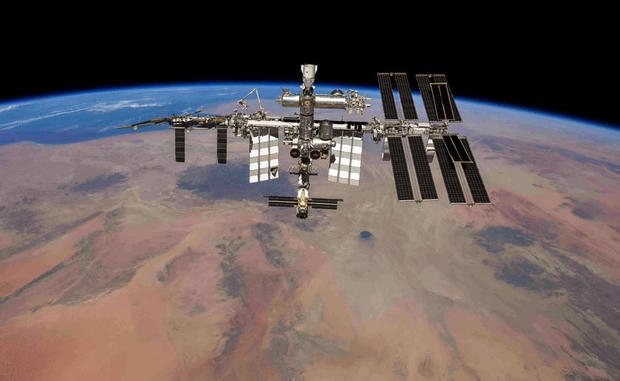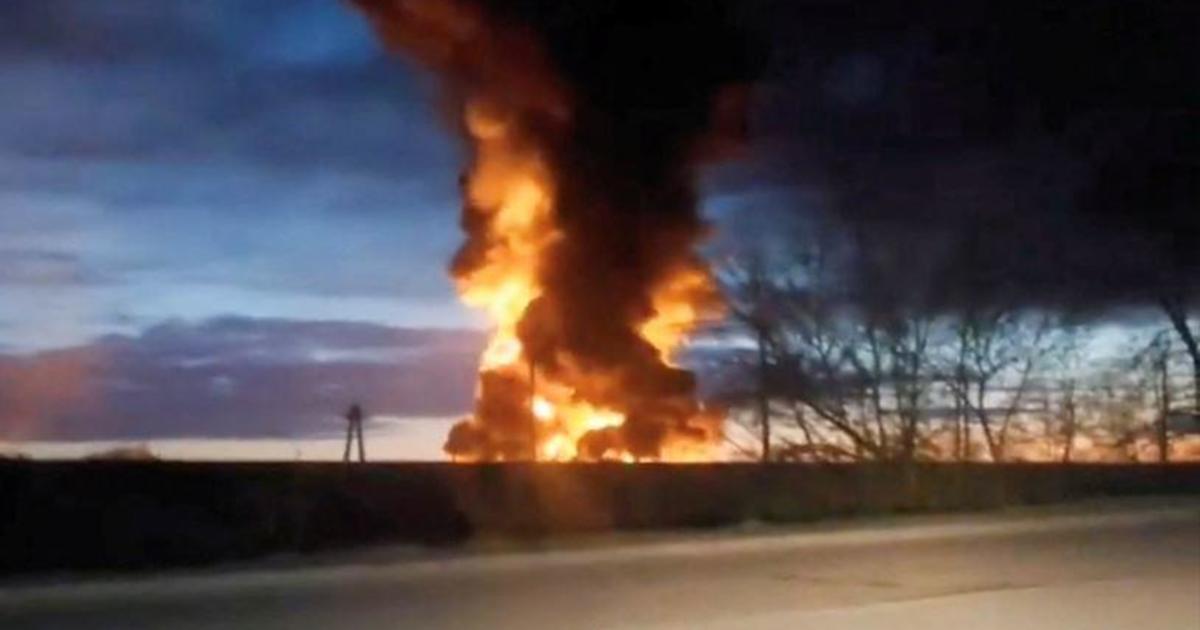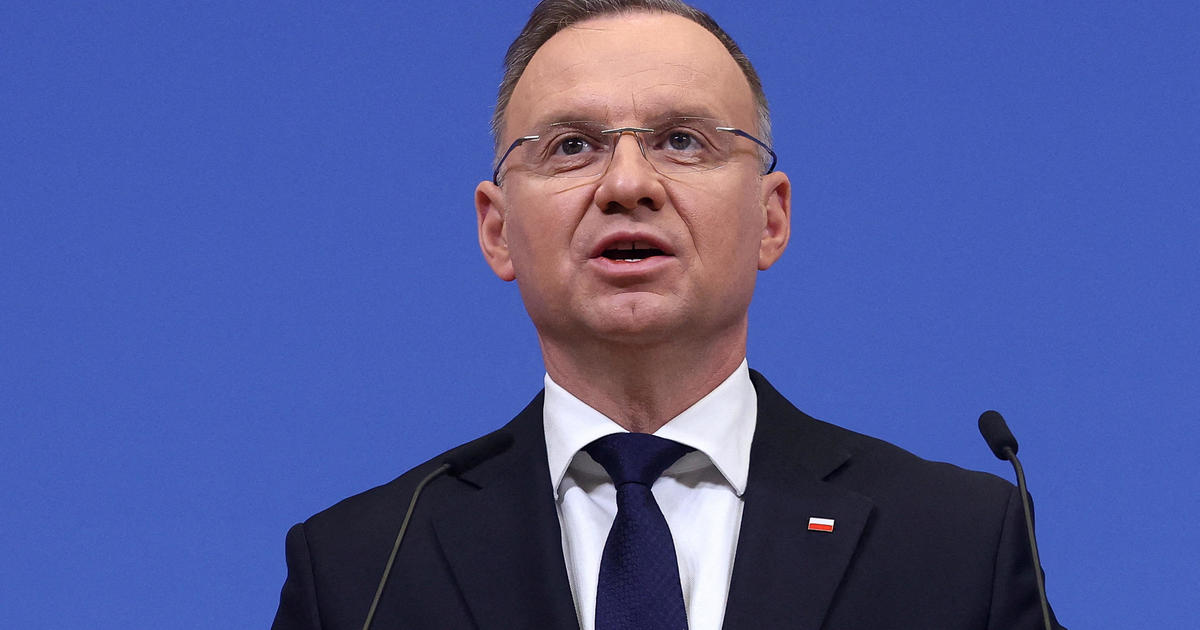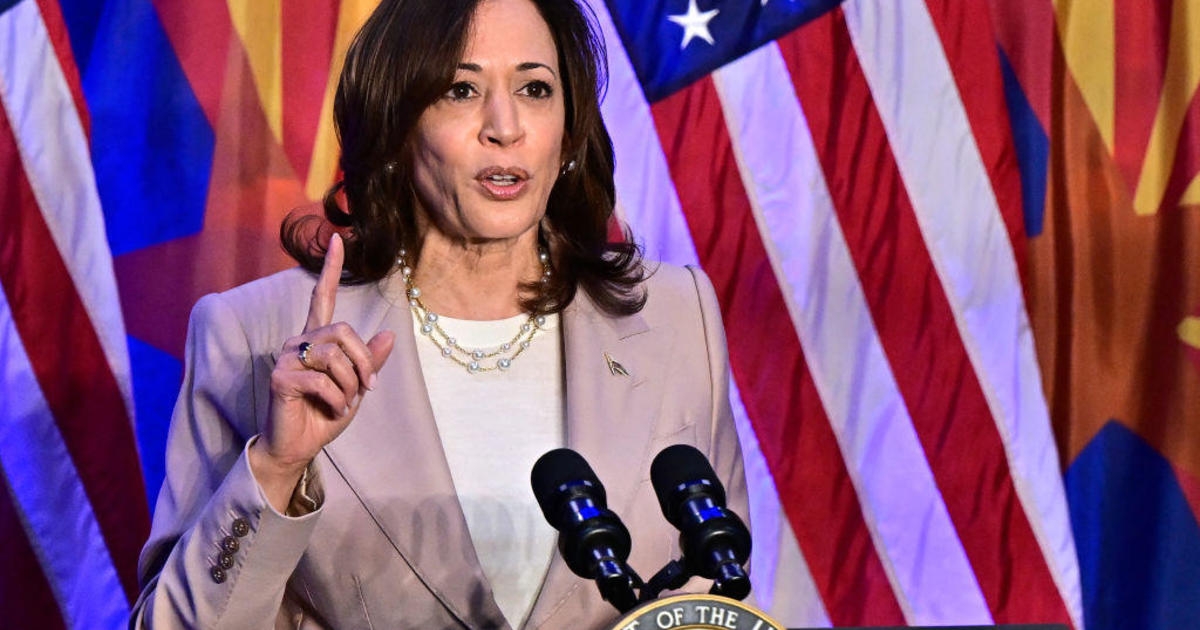Joint U.S.-Russian operation of space station continues normally — for now
Joint U.S.-Russian operation of the International Space Station is continuing normally for now, a senior NASA official said Monday, amid severely strained relations in the wake of Russia's invasion of Ukraine, subsequent economic sanctions and increasingly harsh rhetoric.
During a teleconference to discuss Axiom Space's upcoming commercial crew visit to the lab complex, NASA space operations chief Kathy Lueders said joint space station operations have not been interrupted or otherwise disrupted to date.
"We're continuing to monitor the situation, but our control centers are operating nominally together," she said. "We are not getting any indications at a working level that our counterparts are not committed to ongoing operation of the International Space Station."
"We as a team are operating just like we were operating three weeks ago — our flight controllers are still talking together, our teams are still talking together, we're still doing training together, we're still working together," she added.
The International Space Station is a hugely complex spacecraft, the largest structure ever assembled in space, and it requires both NASA and the Russian space agency Roscosmos to operate.
Russia provides the propellant and thrusters needed to keep the football field-size station in orbit and to eventually guide the huge lab back into the atmosphere or a safe, targeted re-entry and breakup at the end of its life. The United States provides the powerful gyro devices used to maintain the lab's orientation and supplies the lion's share of the station's electrical power.
A Northrop Grumman Cygnus cargo ship launched last week is the first U.S. craft since the now-retired shuttle that is capable of raising the station's altitude, but it cannot take the place of Russian propulsion systems.
And in any case, Russian cosmonauts are not trained to operate U.S. systems and NASA astronauts cannot operate Russia's. The space station is, in the end, a truly international project that requires both superpowers, working together, to function.
"Currently, there is no plan, it would be very difficult for us to be operating on our own," Lueders said. "The ISS is an international partnership ... with joint dependencies. It's a place where we live and operate in space in a peaceful manner. That's really a model for us to be operating in the future."
"It would be a sad day for international operations if we can't continue to peacefully operate in space," she added. "And as a team, we are doing that."
Lueders is one of the highest level NASA managers yet to comment on space station operations amid the ongoing crisis in Ukraine, providing a stark contrast to a barrage of sarcastic tweets from Dmitri Rogozin, director of Russia's space program.
On Monday, he noted that the United Launch Alliance Atlas 5 rocket that will be used to send Boeing's Starliner commercial crew capsule to the space station is powered by Russia's RD-180 first stage engine. He implied the rocket's perfect successful record was the result of Russian specialists who may not be supporting upcoming flights.
"Well, let's pray for our American friends," he tweeted.
ULA is transitioning to a new rocket, the all-American Vulcan, and the company already has stockpiled all the RD-180s it needs to complete the Atlas program. Responding to questions via Twitter, ULA CEO Tory Bruno said the company can safely launch and operate the engines on its own.
"We like to be able to consult with them in the event that the engine might do something unexpected," Bruno said. "But, we have been flying them for years and have developed considerable experience and expertise."
Earlier, Rogozin responded to President Biden's announcement of sanctions by suggesting that without the Russians, the space station could fall back to Earth showering debris over the United States, Europe and even China.
"If you block cooperation with us, who will save the ISS from an uncontrolled deorbit and fall into the United States or Europe," he tweeted. "There is also the option of dropping a 500-ton structure to India and China. Do you want to threaten them with such a prospect?"
Russia has suspended commercial Soyuz launch operations and is withdrawing personnel at the European Space Agency's Kourou, French Guiana. ESA said in a statement Tuesday that the launch this year of a joint science mission to Mars is now "very unlikely," although no formal decisions have been made.
"We deplore the tragic events taking place in Ukraine, a crisis which escalated dramatically into war in recent days," tweeted Josef Aschbacher, director general of the European Space Agency. "Many difficult decisions are now being taken at ESA in consideration of the sanctions implemented by the governments of our Member States."





